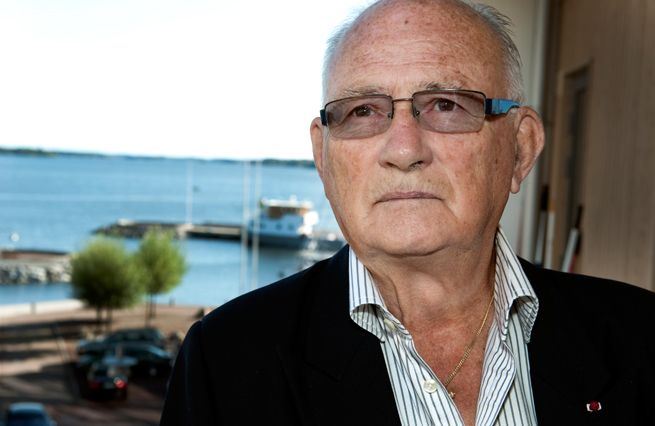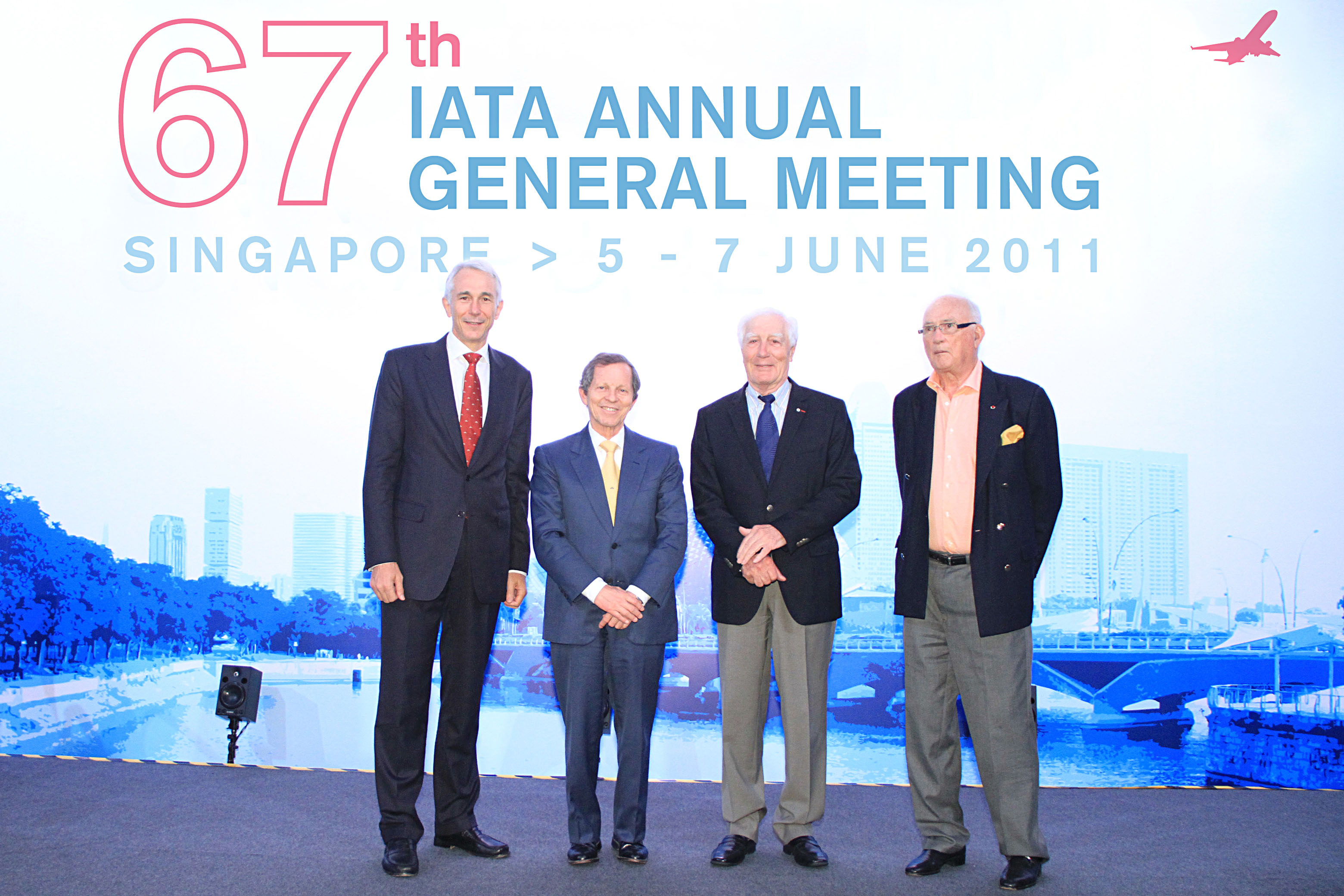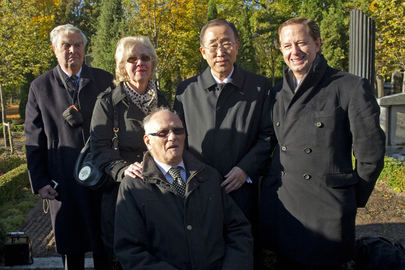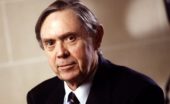Re Ian Bremmer 'Could third-party candidates upend the 2024 US election?' 3 April The current political movement in the USA…
Knut Hammarskjöld 1922-2012
Written by Diana Thebaud Nicholson // January 25, 2012 // Absent Friends, People Meta // 7 Comments

Margo Somerville’s message announced the “sad news that Knut died on January 3rd, 13 days before his 90th Birthday on Jan 16th. His sons Mikael and Erik have both been in contact with me and said his death was unexpected and occurred at his apartment in the environs of Stockholm. That’s all I know at present, but will be back in contact with them to learn more.
KH loved ‘Wednesday Night’ so maybe we could remember him at one in the weeks to come.”
Knut Hammarskjöld has left us
(Dag Hammarskjöld Foundation) Knut Hammarskjöld suddenly passed away on 3 January 2012 at his home in Lidingö. As nephew to Dag Hammarskjöld he was very close to his uncle and throughout 2011 participated actively in various events commemorating the 50th year of Dag Hammarskjöld’s death, among others at seminars in London and The Hague (where his father served as a registrar and then judge to the Court until his untimely death in 1937). He paid tribute to his uncle and his close relation to him as a kind of second father in a contribution to the volume the Foundation published in December 2011 in remembrance of the second UN Secretary-General. Knut attended the book launch and shared a few memories with the audience. On 12 October 2011 the UN Secretary-General visited the Hammarskjöld family grave in Uppsala (where also Knut’s father had been put to rest), where he met members of the family. (See picture below) Behind Knut Hammarskjöld from left: Peder Hammarskjöld, Inga-Lill Hammarskjöld, Ban Ki-moon and Carl Gustav Hammarskjöld. We mourn with Knut’s wife Inga-Lill and other members of the Hammarskjöld family the loss of a close friend.
Memories of our friend Knut and the many hours spent in his delightful company are so numerous, it is best to think of them in terms of a slideshow. He was a Renaissance Man with many facets – diplomat and linguist, media owner, patron of the arts; perpetually curious about new things, he was at ease with people of all ages, cultures and professions. Normally somewhat reserved, he could be engagingly impulsive. Urbane and comfortable in formal dress with medals, he craved his Nordic summer holidays in the wilderness. His beautiful – and eclectic – home at Habitat 67 reflected all these attributes and more.
Knut as Chair & CEO of the Atwater Institute, presided over interminable meetings at the Ogilvy Renault offices, occasionally at the Mount Royal Club and later, in slightly less grandiose space. Always a herding-the-cats challenge, given the participants led by the ebullient, visionary Founder, Frank Common. The Atwater Institute was ahead of its time and few people understood its focus on the world information economy, but Knut grasped the vast implications of the technological revolution that was already beginning, and the potential for both good and ill.
Surprisingly, in the relatively few obituaries, there is no mention of the independent commission that Knut chaired in the late 1980s on the reform of UNESCO. Knut was deeply interested in the work of UNESCO and, if memory serves, was interested in the possibility of becoming its Director-General.
A frequent guest at family suppers, he recounted tales of his friends (some famous or infamous and some unknowns) and experiences around the world; he treated our teen-age offspring as adults, consequently enjoying their unbridled adoration.
An enthusiastic participant at Wednesday Night – where we frequently sought his analysis of international events – and on other occasions, there was often an intriguing aura of mystery and a sense of things left unsaid in his conversations about world events, which simply added to his fascination. Akin to certain successful interviewing techniques, he often seemed to leave three dots at the end of a sentence, which had the power to draw out the other person’s comments. Often we would be astonished by the personal history that Knut would have learned in some 10 minutes of conversation with someone we might have known for some time.
In addition to all his other qualities, we are particularly grateful for his ability to put like-minded people together and thus, for having introduced us to our wonderful friends, then Swedish Consul General Karin Ahrland and her husband Nils.
In the summer of 1992, Knut was a panelist in the Couchiching session on Competitiveness and Social Justice: How Can Canada Have Both? Speaking on the Swedish model, he quickly stated that he was not an expert on the topic, since he had lived outside his country for some 50 years, 25 of them in Canada. But with borrowed knowledge he would try to trace the origins of the myth. And, of course, he did so impressively.
Knut Hammarskjold 1922-2012
Byron Toben
(The Suburban Newspaper, January 25th) Knut Hammarskjold, almost 90, unexpectedly passed away on January 3 at his apartment in Lidingo, Sweden. He had spent 25 of those years in Montreal, where he was the Director General of IATA (International Air Transport Association) from 1966 to 1984.
IATA, the trade association of the world`s scheduled airlines, grew from some 70 Members to about 120 during that time. (IATA is not to be confused with ICAO (International Civil Air Organization) which is a specialized agency of the United Nations (also based in Montreal) where governments are members.)
During his directorship, succeeding Sir William Hildred of the U.K., IATA introduced many innovations, particularly with currency and billing methods between airlines as well as with travel agents.
He also foresaw and encouraged the growth of airlines in the developing world. He had to juggle the impetus toward privatization, pushed by the US anti-trust department. All this despite the fact that the IATA Secretariat had no governing powers of its own, but only acted as a logistic convenience to its member airlines and in a consultative capacity.
Knut was born into the Swedish nobility. The Hammarskjold clan produced a myriad of government officials, academics and corporate officers. His grandfather Hjalmar was Prime Minister during the First World War. His father Ake, a member of the International Court at the Hague, died atypically young ( many of the clan reached 90) when Knut was only 15. His uncle, Dag, who was the second Secretary General of the United Nations, became, in many respects, a surrogate father to Knut.
When Dag died in a mysterious 1961 plane crash in Northern Rhodesia (now Zambia) on his way to mediate an end to the Katanga-Congo secession dispute. Knut was the family designate to collect Dag`s personal belongings there.
As recently as September 2011, in retirement, Knut had called for a re-examination of that crash.
Before joining IATA, he had been Deputy Secretary General of EFTA (European Free Trade Association) . He spoke German, French and English in addition to Swedish.
After leaving IATA, he kept active with many public and private ventures. In Montreal, he was particularly supportive of the Atwater Institute, an early advocate of electronic communications. He was also a frequent visitor at David and Diana Nicholson`s Wednesday Night salons in Westmount, Quebec.
He leaves his wife, Inga-Lill and four sons.
Mr. Toben was a legal officer at IATA and later IATA
Travel Agency Commisioner during Mr Hammarskjold`s directorship.
The Knut we knew and loved :
(TIME June 3, 1966) The swamp gas might have been particularly thick around Manhattan that day. Knut Hammarskjöld, 44, director general of the International Air Transport Association, was conjuring up otherworldly aircraft at a meeting of the Aviation Space Writers Association. “I must make a confession,” said Knut, whose Uncle Dag Hammarskjold was rather a mystic before him. “I believe in those Unidentified Flying Objects. Is it really unlikely that there exist civilizations outside our planet which are more developed, both technically and mentally, than we are? Are these space neighbors of ours getting more interested in…
Searching for an obituary, we came across this LRB review of the recently published The man who killed Hammarskjold
There were two great mysteries that Knut was never satisfied had been adequately explained – the first was his uncle’s death and the second was Raoul Wallenberg’s fate. It’s interesting that one of the letters (Rolf Rombe) makes a connection between the two.
“In the end, the Swedish Government accepted the maximum penalty: not only the loss of Dag Hammarskjöld, but the attribution of responsibility for his death to a Swedish crew. Why? Parallels have been drawn with the behaviour of the Swedish Government when Raul Wallenberg disappeared in the USSR in 1945. The overriding aim was to avoid embarrassment, to avoid jeopardising friendly relations and Sweden’s neutral position. The ‘kidnapping track’ was not to be examined, not even in order to be disproved.”
Update: January 16, 2012
Wallenberg’s Life-Giving Legacy
By Hillary Rodham Clinton, U.S. secretary of state, and Carl Bildt, foreign minister of Sweden.
(NYT) Tuesday begins a year-long celebration of the life of Raoul Wallenberg, the Swedish diplomat who chose not to be indifferent when faced with great evil.
Document backs claims KGB stopped Raoul Wallenberg probe
(AP) – A newly found Swedish document shows how the KGB intervened in the early 1990s to stop an investigation into World War II hero Raoul Wallenberg‘s fate, two U.S.-based researchers said Monday.
Following the book’s publication last Fall, Knut was asking for a new enquiry:
Dag Hammarskjöld: nephew calls for new inquiry into death of UN chief
Book argues plane carrying Hammarskjöld was shot down by mercenaries in 1961 and evidence covered up
We have not read the book, but after reading the Guardian article, are very anxious to do so.
Knut also contributed to the BBC program Witness “The Death of Dag Hammarskjold” in September 2011
Perhaps now that he has gone on to the Great Beyond, Knut will have the answers to his questions.
 Knut was the second Director General of IATA from 1966-1984
Knut was the second Director General of IATA from 1966-1984
… A Swedish diplomat, [he] joined IATA from the European Free Trade Association where he held the position of Deputy Secretary General.
As IATA’s Director General, Knut Hammarskjöld restructured key parts of the organization’s activities, including those concerned with tariff coordination and compliance, to align with the emerging trends of market liberalization in the late seventies.
He launched the first billing and settlement system in Tokyo in 1972, which has evolved into today’s successful BSP and CASS, facilitating financial transactions between passenger as well as cargo agents and the airlines.
Mr. Hammarskjöld also initiated the Program for Developing Nations that has evolved into IATA’s training activity.
16 September 2011
Dag Hammarskjöld: nephew calls for new inquiry into death of UN chief
Book argues plane carrying Hammarskjöld was shot down by mercenaries in 1961 and evidence covered up
(The Guardian) Dag Hammarskjöld‘s closest surviving relative has called for a new inquiry into the 50-year-old mystery surrounding the UN secretary general’s death in a plane crash in central Africa, after the publication of a book arguing that his aircraft was deliberately brought down.
The book, Who Killed Hammarskjöld, raises questions about the original inquiry carried out by the colonial Rhodesian authorities and introduces new evidence suggesting foul play behind the crash of Hammarskjöld’s DC-6 plane near Ndola, in present-day Zambia.
The secretary general’s nephew, Knut Hammarskjöld, his closest living descendant, called for a new public inquiry in light of the new evidence. “There is much in Susan’s book and her investigations that prove to me there is still quite a lot to be looked into,” Hammarskjöld, now aged 89, told the Guardian. “The way this could be done is of course open, but the people who are responsible … should come forward and the UN should be involved.”
After the crash Knut Hammarskjöld flew to Ndola to collect his uncle’s personal effects and was struck by the reluctance of the British authorities there to hand them over. He was eventually given his attache case which showed no signs of charring despite the inferno that had engulfed the Albertina when it crashed into the forest near Ndola. “For me, there has always been an question mark over the whole affair,” he said.
THE SECRETARY-GENERAL’S TRIP TO SWEDEN INCLUDED MEETINGS WITH THE GOVERNMENT AND THE DAG HAMMARSKJOLD FAMILY
When the Secretary-General arrived in Sweden on October 12, he went directly to Uppsala to visit the grave of the late UN Secretary-General Dag Hammarskjold, who died in a plane crash fifty years ago in Ndola. Upon his arrival, three former soldiers who served with the UN Mission in the Congo during 1961, namely, Bror Svard, Roland Lindholm and Staffan Andersson were in attendance, and members of the Hammarskjold family, namely, Ambassador Knut Hammarskjold, Peder Hammarskjold and Carl-Gustav Hammarskjold shown here participated in the ceremony at the gravesite of Dag Hammarskjold, together with the Secretary-General.
The former Swedish peacekeeper who worked for Dag Hammarskjold a half century ago participated in the ceremony, as well.

Shown above are members of the Dag Hammarskjold family, together with the UN Secretary-General at the gravesite of the former UN Secretary-General, Dag Hammarskjold, in Uppsala, Sweden. Pictured are Ambassador Knut Hammarskjold, Peder Hammarskjold, and Carl Gustav Hammarskjold. UN Photo/Eskinder Debebe.
(International Association of IATA Retirees) It is with sadness that we are announcing the death of Knut Hammarskjold in his home in Stockholm, Sweden on January 3, 2012. Knut Hammarskjold was born in Geneva in 1922 and spent parts of his childhood in the Netherlands. He developed a keen interest in civil aviation early and served as the Director General of IATA between 1966 and 1984. He spent much time in Montreal, where he also served as Chair and CEO of the Atwater Institute. He will be greatly missed by his wife Inga-Lill, his sons Mikael, Erik, Knut and Mark and their families, and by relatives and friends in Sweden and around the world. The funeral service is being held with the family at the Lidingo Church, Stockholm, Sweden.
Globe & Mail
On January 3, 2012, Knut Hammarskjöld died suddenly in his home in Stockholm, Sweden. KH was born in 1922 in Geneva and spent parts of his childhood in the Netherlands. He served in the Swedish diplomatic service and EFTA. KH early developed big interest in civil aviation and served as Director General of the IATA between 1966 and 1984. He spent much time in Montreal, where he also served as Chair and CEO of the Atwater Institute. KH will be greatly missed by his wife Inga-Lill, his sons Mikael, Erik, Knut and Mark and their families, and by relatives and friend in Sweden and around the World.



7 Comments on "Knut Hammarskjöld 1922-2012"
Wow. What a legacy Knut leaves. I remember him fondly, especially as he helped me get an A in political science.
Fiona Nicholson
Knut’s attendance always led to an exciting WNs.
He always managed to bring a new insight to the subject in question and he always had a twinkle in his eye as he said it.
Ron Meisels
Like so many others, I was saddened to hear of Knut`s demise. As a legal officer for IATA and later IATA Travel Agency Commissioner-USA, I was
pleased to work under his leadership.
He was always a gentleman and practical while also considering the
long term overview during tumultuous times..although in the airline industry,most any time is tumultuous.
Vila i Frid.
Byron Toben
I was deeply saddened to learn of Knut’s death. Knut mentored me as a young lawyer at Ogilvy Renault where I was tasked with supporting the Atwater Institute in a number of the legal, policy, and diplomatic issues. Knut’s interest in the future of information and communications technology was prophetic. In 1986 only a handful of graduate students understood that an internet would soon change the world, but this grand, distinguished gentleman of the classic period of international relations had the vision and imagination to lead us in broaching the issues and opportunities of this future at the UN, and with the various interested states around the globe. I salute him as a brilliant and subtle mentor, and as a visionary.
This message is for Mikael. Please make contact with me at your earliest convenience. Thanks. – Bill (William Ranallo’s step-son)
I learned about Knut through reading about Dag and becoming involved in the search for justice. Knut was clearly a wonderful person also and I wish he had lived to see the progress which the investigation is making. I have a question about the wonderful photo of the Hammarskjold family with Ban-ki Moon, who is the woman?
The woman pictured is, I believe, his wife Inga-Lill.